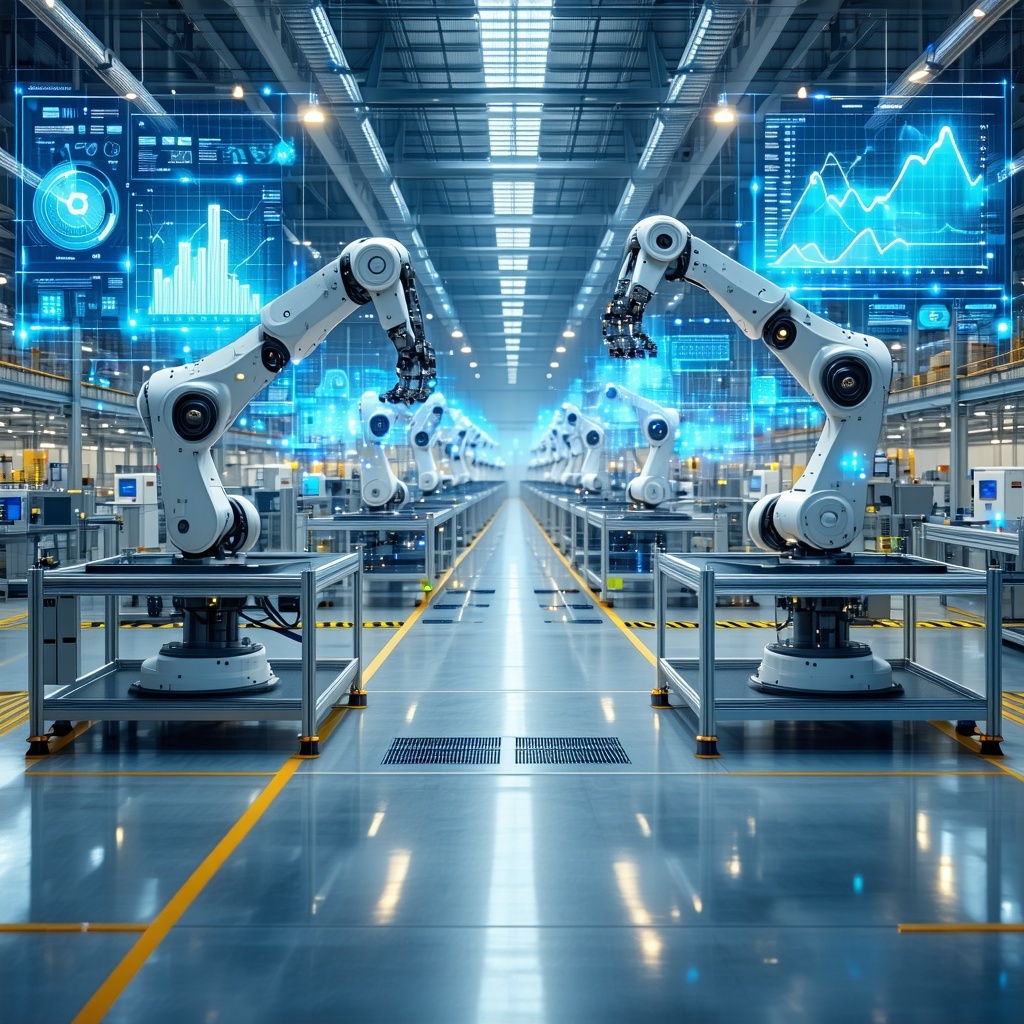Core ERP Features Every Manufacturer Should Look For
Which ERP features should a manufacturing business prioritize to run on time and on budget?
6 min read
 Blake Snider
:
Oct 24, 2025 8:59:59 AM
Blake Snider
:
Oct 24, 2025 8:59:59 AM
For heavy equipment manufacturers, the wrong ERP software is a direct threat to project profitability. Your operation depends on managing complex, engineer-to-order products, multi-stage fabrication, and product lifecycles that span decades. When you rely on generic manufacturing ERP software built for simple, repetitive production, it inevitably fails to keep up. These systems fracture under the weight of intricate Bills of Materials (BOMs), disconnected service management, and poor project visibility, leading to the budget overruns and missed deadlines that erode your margins.
As of October 2025, buyers should expect modern, cloud‑ready ERP capabilities validated against current fabrication, project, and service requirements. This article provides a direct comparison of ERP options for the equipment industry. We'll show why a comprehensive ERP solution like IFS provides superior, integrated control over the entire manufacturing process—from fabrication to aftermarket service. This is the level of control that niche or generic manufacturing businesses need to optimize their complex operations and protect their margins.
Most manufacturing ERP software is designed for discrete, high-volume production, which is fundamentally different from the project-based reality of the industrial machinery and equipment industry. This mismatch creates significant operational gaps, as these systems lack the specialized functionality required to manage the complexities of heavy equipment manufacturing. The result is often a patchwork of disconnected software solutions that hinder visibility and efficiency.
A core weakness of generic ERP systems is their rigid Bill of Materials structure. They cannot adequately support the dynamic, multi-level, and configurable BOMs that are standard for industrial machinery. Engineers are often forced to manage complex revisions in offline spreadsheets, which breaks the "single source of truth" and leads to costly procurement errors and incorrect production schedules. This makes tracking the true "as-built" versus "as-maintained" configuration of a specific asset over its lifecycle nearly impossible, a critical function for quality control and service management.
Heavy equipment manufacturing involves distinct fabrication stages—like cutting, welding, and machining—that must be tightly coordinated with final assembly. Many ERP solutions treat these as siloed work centers with poor data integration. This lack of a unified platform prevents production managers from seeing how a delay in a fabrication sub-assembly will impact the final assembly schedule. Without this visibility, it's difficult to optimize resource allocation and prevent unforeseen bottlenecks on the manufacturing shop floor, a challenge highlighted by a recent analysis of production efficiency by the Association for Manufacturing Technology.
For heavy machinery, the initial sale is just the start of a long-term revenue stream from service, parts, and warranty management. Generic manufacturing ERP software rarely includes a robust, integrated service management module. This forces industrial equipment manufacturers to bolt on a separate system for field service, creating a critical disconnect between a product’s manufacturing data and its service history. When a technician is in the field, they lack visibility into the specific BOM of the machine they are servicing, hindering first-time fix rates and impacting customer satisfaction.
To overcome these challenges, industrial machinery and equipment manufacturers must choose an ERP system with purpose-built capabilities. The right ERP for industrial machinery provides a single, unified platform for managing complexity from initial engineering through decades of aftermarket support, ensuring complete visibility and control.
Your equipment and machinery manufacturing ERP must provide a flexible framework for managing complex product structures. This includes native support for multiple BOM views—Engineering (EBOM), Manufacturing (MBOM), and Service (SBOM)—within a single, revision-controlled environment. An advanced manufacturing ERP like IFS allows engineers to create and modify engineer-to-order designs directly within the system, with all changes automatically updating procurement and production schedules. This ensures the shop floor is always working from the latest design, while the service team has a precise record of the as-built configuration for future equipment maintenance.
Instead of managing production as a series of disconnected work orders, the right ERP solution embeds manufacturing within a project management framework. This approach provides end-to-end visibility, linking engineering, procurement, and all manufacturing processes to specific project milestones and budgets. This is a core feature of the top ERP systems for manufacturing designed for complex, project-based work. This integration allows you to track real-time costs against project estimates, manage resource capacity across multiple long-lead-time jobs, and identify potential delays before they impact delivery, giving you the tools to streamline industry compliance.
Effective management for industrial manufacturers extends far beyond the factory. A modern ERP platform captures every event in an asset's life, creating a complete digital thread from the initial design data to final decommissioning. This helps manufacturers manage customer relationships and warranty claims with complete accuracy. As of late 2025, industrial equipment manufacturers are leveraging this data for predictive maintenance. For instance, with a fully integrated system, a service manager can analyze failure rates on a specific component across all active machines in the field to proactively schedule maintenance, a key benefit of a comprehensive ERP.
While niche ERPs for industrial equipment and machinery manufacturing exist, they often solve one problem well while creating new data silos. Similarly, broad cloud ERP solutions like Acumatica Cloud ERP may not have the specialized depth required. A comprehensive ERP like IFS provides a cohesive environment, offering distinct advantages over both narrowly focused and overly generic software suites.
Niche ERP solutions tailored for one aspect of production, such as fabrication, rarely include robust, integrated modules for financial management, CRM software, or supply chain management. This forces manufacturers to stitch together multiple software solutions, leading to high integration costs and poor visibility. In contrast, a comprehensive ERP like IFS provides a unified platform where sales, engineering, production, and finance all work from the same data. This eliminates information silos and provides a real-time, 360-degree view of the entire equipment manufacturing business.
This is where a single, comprehensive ERP solution truly excels. IFS natively connects the manufacturing record of a machine to its entire service life. Imagine a technician receiving a service call for a 15-year-old piece of heavy machinery. Within the ERP platform, they can instantly access its specific serial number and see the original manufacturing BOM, all subsequent component replacements, and the complete service history. This level of insight is impossible when using separate systems for production and service management—a common limitation of other ERP options.
The manufacturing sector continues its rapid shift toward cloud-based manufacturing and ERP technology. A modern, cloud-based ERP like IFS offers a scalable platform that grows with your business and allows for easier integration of IoT and AI for predictive maintenance. Many older or niche on-premise systems lack this modern architecture, limiting your ability to innovate and compete. According to a report from Deloitte on digital transformation in manufacturing, this technological agility is crucial for long-term success.
Independent analyst coverage (e.g., Gartner/IDC/PAC summaries) highlights project‑centric manufacturing and service lifecycle depth as key differentiators for equipment OEMs, alongside adherence to neutral standards (e.g., ISO/IEC 11801 classes for cabling layers interfacing with shop‑floor networks).
Choosing your next ERP system is a long-term strategic investment. The decision requires a rigorous evaluation of how a potential system aligns with the unique operational realities of the heavy equipment industry. Focusing on the right criteria will ensure you select the right ERP software for the future.
Your primary goal when implementing an ERP system should be to achieve a single source of truth across your entire enterprise. The right ERP solution breaks down departmental silos, providing real-time visibility from the initial sales quote and engineering design through to aftermarket service and financial reporting. During vendor evaluations, demand demonstrations that show a seamless data flow across these functions.
A standard sales demo is not sufficient. To truly assess an ERP’s capability, you must see it perform using your data and your manufacturing processes. Challenge potential vendors to build a prototype of one of your complex, multi-level BOMs or model a specific fabrication workflow. This will quickly reveal whether the ERP for industrial machinery can handle your real-world complexity.
Do not be swayed by a low initial licensing fee from a niche vendor. Consider the total cost of ownership (TCO), which includes the significant expenses of integrating multiple disparate systems, maintaining those integrations, and training users on different interfaces. A comprehensive ERP often presents a lower TCO over the long run by eliminating these hidden costs and simplifying your technology stack.
Decision‑stage buyers should validate role‑based access controls, audit trails, and segregation of duties; confirm tenant isolation and data residency; and review change‑management (ECR/ECN) governance tied to BOM versions and serial/lot traceability. Require phase‑gated implementation with quality checkpoints (design freeze, pilot, cutover) and insist on a vendor‑supported security hardening guide.
For industrial equipment and machinery manufacturers, success depends on managing immense complexity with precision. Generic manufacturing ERP software is not equipped for the challenge, and niche solutions often create more problems than they solve. The clear path forward is a unified ERP solution built to handle intricate bills of materials, integrated project-based fabrication, and complete asset lifecycle management.
A tailored ERP with end-to-end visibility is a strategic move that helps you streamline manufacturing processes, protect margins, and deliver superior value to your customers for decades. See for yourself how a unified platform handles the most complex builds. Schedule a side-by-side demo to see how IFS measures up, or contact us to discuss your specific needs.
Which ERP features should a manufacturing business prioritize to run on time and on budget?

Are you confident your ERP system can keep pace with what’s coming? Manufacturers are already rethinking what ERP should do, moving beyond...

Welcome to our comprehensive guide on the top cloud-based ERP systems for manufacturing in 2025! If you're a manufacturing company seeking to...